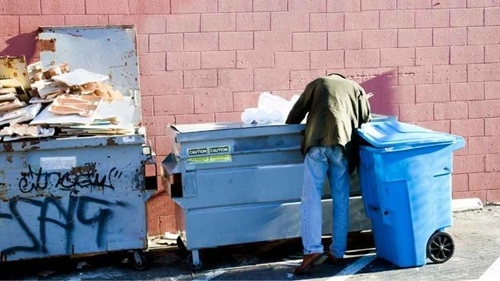Burning an old mattress might seem like a quick way to get rid of bulky trash, but in the United States, it’s generally illegal and can lead to serious environmental, health, and legal consequences. While many people assume backyard burning is a harmless disposal method, doing so violates multiple federal, state, and local laws designed to prevent toxic pollution and fire hazards.
Let’s break down the legal, environmental, and safety issues surrounding mattress burning — and what legal alternatives exist.

Why People Burn Mattresses — and Why It’s a Problem
People often consider burning mattresses to avoid the cost or hassle of hauling them to a landfill. However, modern mattresses contain materials like polyurethane foam, synthetic fabrics, flame retardants, and adhesives. When burned, these substances release toxic gases such as:
- Carbon monoxide
- Formaldehyde
- Hydrogen cyanide
- Dioxins and other carcinogenic compounds
These pollutants can cause respiratory issues, nausea, skin irritation, and long-term health effects for anyone nearby. They also contaminate soil and groundwater.
Because of these dangers, both the Environmental Protection Agency (EPA) and state environmental departments classify mattress burning as an unauthorized or illegal open burn in almost all situations.
Federal and State Laws on Burning Mattresses
1. The Clean Air Act (Federal Law) – The EPA enforces the Clean Air Act, which prohibits open burning of household waste that emits harmful pollutants. Burning synthetic materials like foam, plastic, and treated fabrics (all found in mattresses) falls squarely under this ban.
Violating these provisions can result in civil penalties of thousands of dollars per day of violation, depending on the severity and environmental impact.
2. State Environmental and Fire Safety Laws – Every U.S. state has additional restrictions on open burning:
- Texas: The Texas Commission on Environmental Quality (TCEQ) explicitly bans burning materials that produce heavy smoke, including mattresses and furniture. Violations can lead to fines up to $25,000 per day.
- California: The California Air Resources Board and local air districts prohibit open burning of household waste under Title 17 of the California Code of Regulations. Burning a mattress is a misdemeanor offense.
- Florida: Open burning is governed by the Florida Administrative Code 62-256, which bans burning materials other than yard debris or untreated wood.
- New York: State law prohibits burning trash or household waste, including mattresses, under 6 NYCRR Part 215.
In almost every state, the only legal open burning allowed involves clean, natural materials like tree limbs, leaves (in some areas), or untreated wood — not furniture or synthetic goods.
Local Ordinances and Fire Codes
Cities and counties often have stricter fire codes than state law. Local fire marshals frequently impose burn bans and permit requirements.
For example:
- In Los Angeles County, burning any household item like a mattress in a backyard or public space can lead to fines and misdemeanor charges.
- In Chicago, illegal burning within city limits can trigger fines ranging from $500 to $2,500 and mandatory cleanup costs.
Even if you live in a rural area, you must check with your local fire department or environmental health agency before lighting any fire.
Legal and Safe Alternatives to Burning a Mattress
Instead of burning, here are safe and lawful disposal options:
- Municipal Bulk Waste Pickup: Many cities offer free or scheduled large-item pickup days.
- Mattress Recycling Programs: Check programs like Bye Bye Mattress (operating in CA, CT, RI) that recycle metal springs, foam, and fibers.
- Landfill or Transfer Station Drop-Off: Licensed facilities accept mattresses for proper disposal or recycling.
- Donation (If Usable): Some charities (like Habitat for Humanity ReStores) accept lightly used mattresses if they meet hygiene standards.
These options are legal, eco-friendly, and risk-free.
Penalties for Illegal Mattress Burning
Penalties vary by jurisdiction but may include:
- Civil fines ($500–$25,000 per incident)
- Criminal charges (misdemeanor or, in extreme cases, felony)
- Restitution for fire department response or environmental cleanup
- Community service or probation for repeat offenders
Beyond legal consequences, offenders may also face civil liability if the fire spreads and damages neighboring property or harms someone.
FAQs: Is It Illegal to Burn a Mattress?
Q. Can I burn a mattress on my own property?
No. Federal and state laws classify burning mattresses as illegal open burning due to toxic emissions. Even on private land, it violates air quality regulations.
Q. What happens if I’m caught burning a mattress?
You may face fines, citations, or criminal charges depending on your state and county. Authorities can also bill you for emergency response costs.
Q. Are there any exceptions?
Only licensed waste disposal or recycling facilities with EPA-approved incinerators can legally burn mattresses under strict emission controls.
Q. Can I burn just part of the mattress (like wood or fabric)?
No. Mattresses are composite items, and separating materials doesn’t eliminate chemical or pollution risks.
Q. How can I get rid of a mattress for free?
Many local governments offer bulk pickup or drop-off days. You can also check online for local recycling centers or donation programs.
Bottom Line
Burning a mattress is illegal in nearly every U.S. state and violates multiple environmental and safety laws. Beyond the legal penalties, it releases dangerous toxins that harm your health and community. The safe, responsible choice is to recycle, donate, or properly dispose of your old mattress through authorized services — not burn it.

